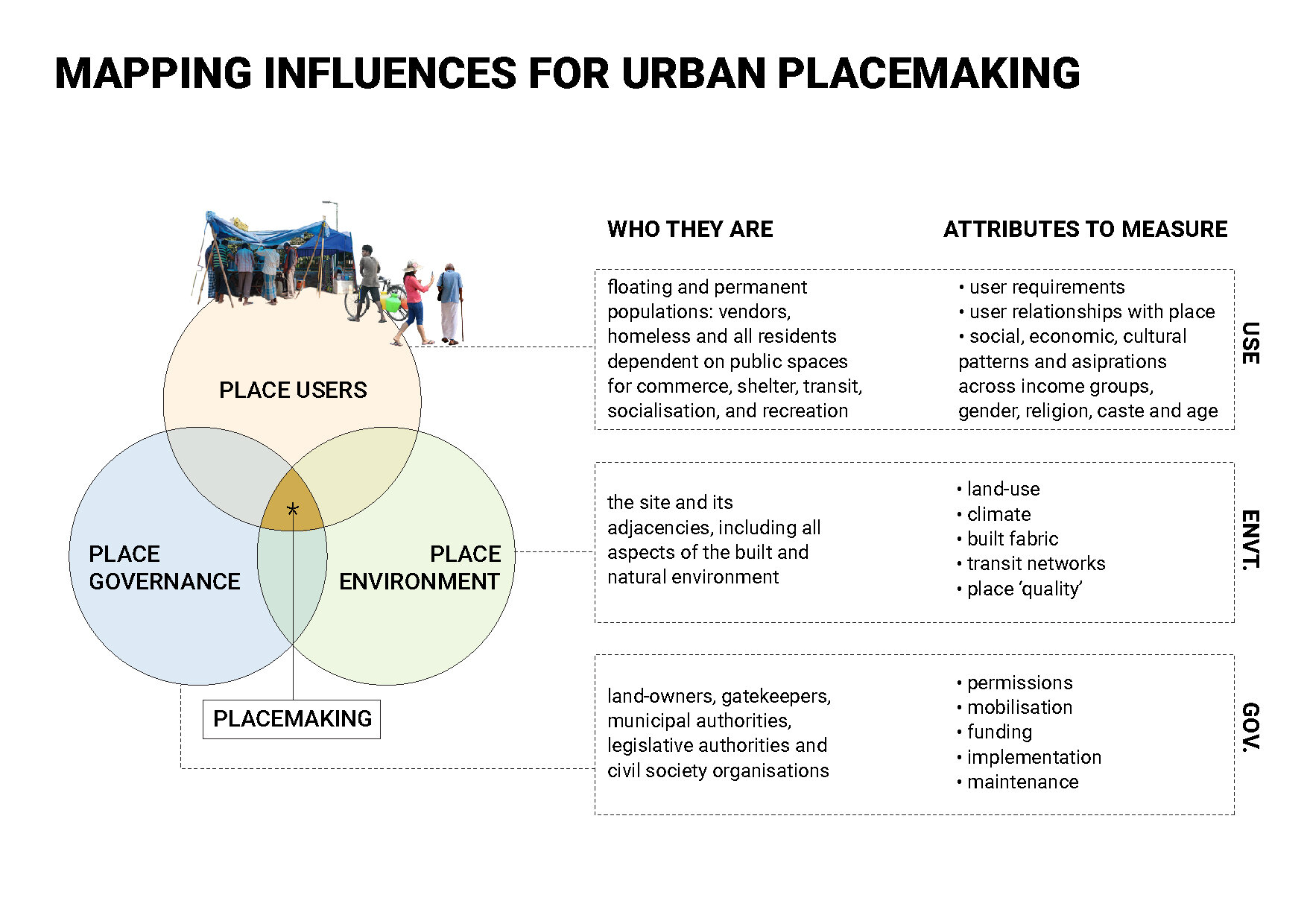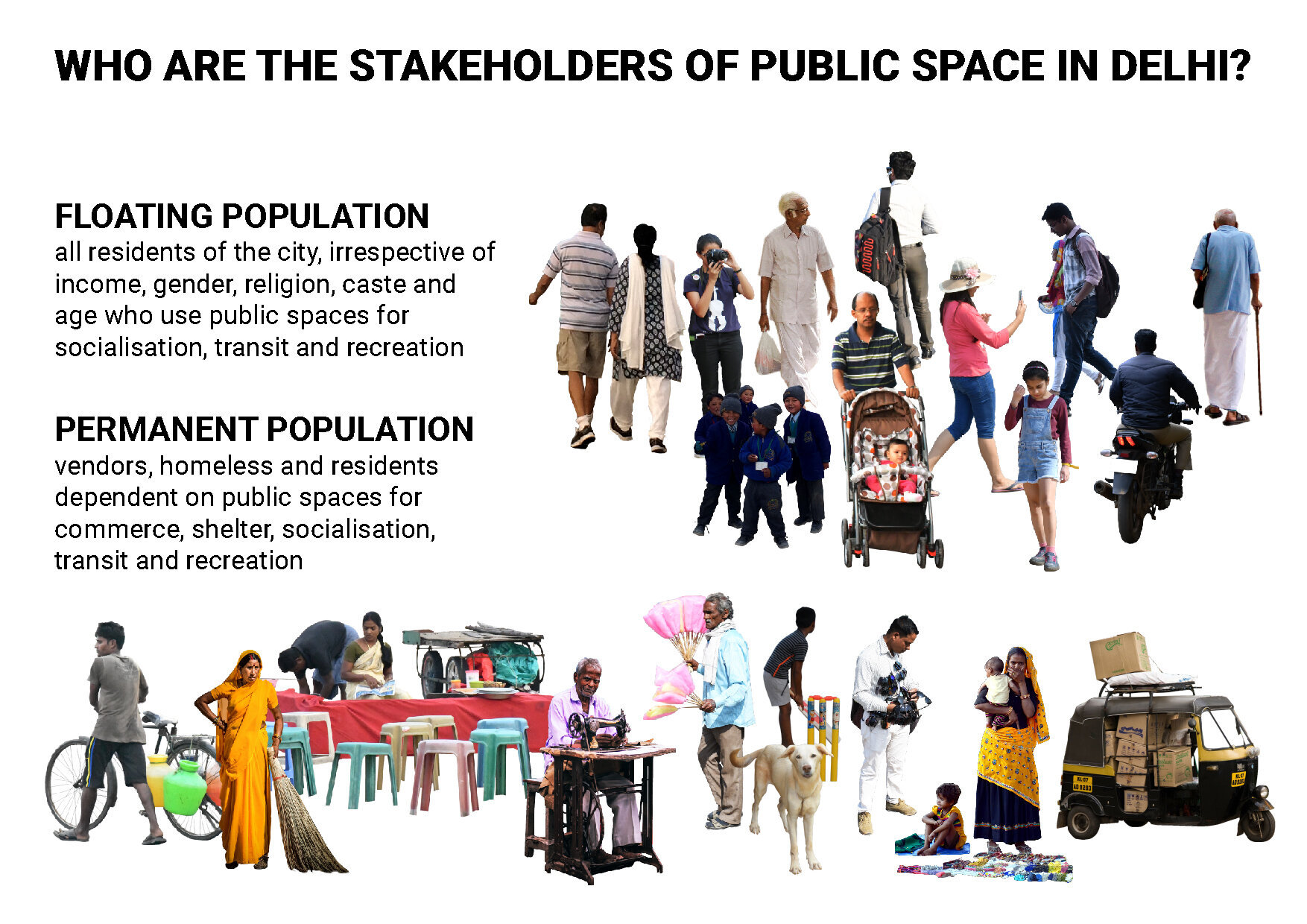Tools to Assess Place Quality
‘Placemaking’ is a process of revitalising public spaces. It has been tested in different parts of the world, and can be intelligently adapted for Delhi’s urban environment.
Although Delhi’s public spaces are highly ‘activated’, the ‘making of a place’ is rooted in proper management of people-centric strategies and local governance. Placemaking helps communities to re-imagine everyday spaces in the city - to recognize the potential of streets, parks, markets, neighbourhoods and public buildings. As a process, it capitalizes on a local community's assets, needs and imaginations, resulting in the creation of ‘productive’ public places that contribute to people's health, happiness, and well being. Such projects can act as catalysts to mobilise larger-scale change across the city.


Public Space Inventory
Borrowing from the voices of the female informal workers in Raghubir Nagar, we have devised a Public Space Inventory (PSI) framework that collates our insights on planning and governing for informality and accounting for hyper-local, socio-spatial issues. This could inform policy recommendations, planning priorities, governance responsibilities and citizen-led action across individuals, neighbourhoods and cities.
The Public Space Inventory (PSI) framework is applicable in other contexts in a way that is readable and understandable to mostly all stakeholders, which is why we are working to extend it to the whole of Delhi (presently lacking) to keep a citizen-driven account of the city’s public spaces. This exercise aims to showcase grassroots work and the complexity of urban issues and, importantly, encourages associated action.
Download a copy of the Public Space Inventory matrix to use in the context of your work and stakeholders. Copyright of City Sabha 2023, please credit in use.
Place Quality Index
The Place Quality Index (PQI), is a toolkit developed by City Sabha to assess the quality of public spaces in Delhi, based on the four key attributes defined by the Project for Public Spaces: 1. Safety and Inclusivity; 2. Comfort; 3. Economy and Infrastructure; 4. Activity.
Methodology
We worked backwards by first understanding what makes a public space valuable. With the Place Value Wiki as a primary frame of reference, we considered the value of public space for its impact on four broad categories: Health, Society, Economy and Environment. Our methodology included:
Understanding the value of a well-designed urban public space
Collating a set of attributes that influence the value of a space
Reverse-engineering the attributes of a well-designed urban public space to arrive at a set of quantitative and qualitative indicators that can be used to assess existing public spaces
Cross-referencing these indicators with existing toolkits to assess public space
Adding layers to these indicators to reflect the ground-realities of Delhi’s public spaces (informality, lack of basic infrastructure, lack of urban governance systems)
Arriving at a ‘Place Quality Index’ to assess the value and quality of a given public space
Existing Benchmarks and Toolkits
Our work was based on a number of existing toolkits than define place quality. While these are more applicable in Global North cities, they have formed an important benchmark for us to think about Delhi’s local environment in the context of the global development agenda. Some of these are: The Project for Public Space, Place Value Wiki, United Nations Global Public Space Toolkit, MIT DUSP ‘Places in the Making’, Safetipin Audit, and the Pedestrian Environment Review System (PERS).
Assess Your Place Quality: an Everyday Toolkit
Download a copy of the full Place Quality Index to use in your city. All toolkits are copyright of City Sabha 2020, please credit in use.

